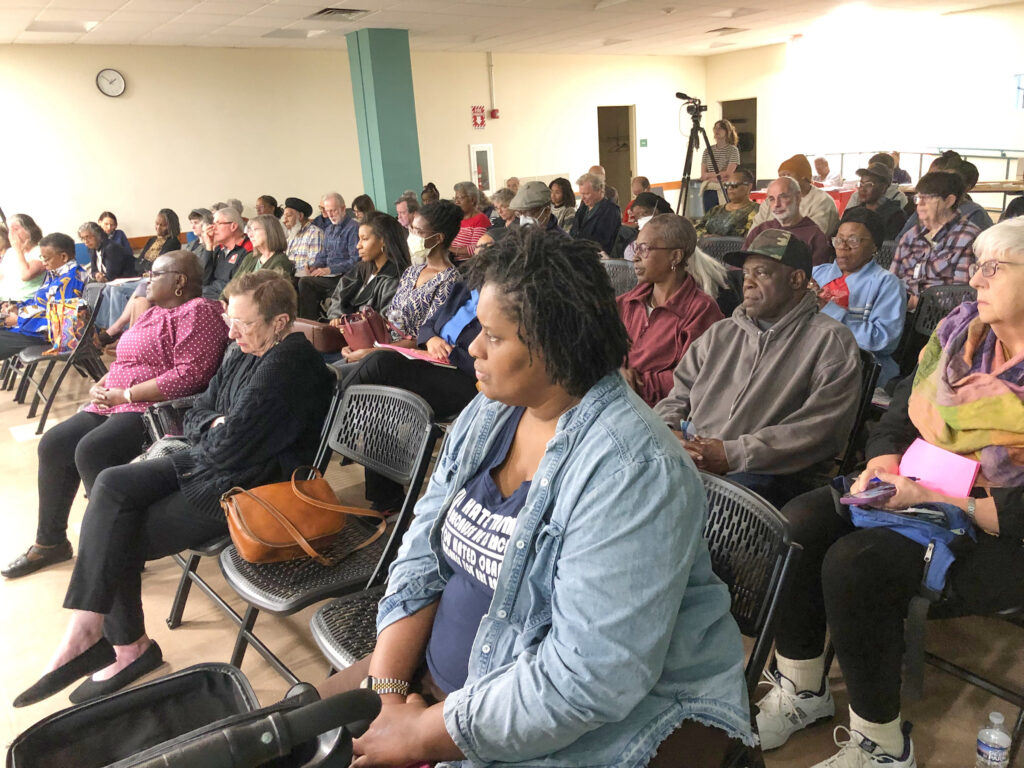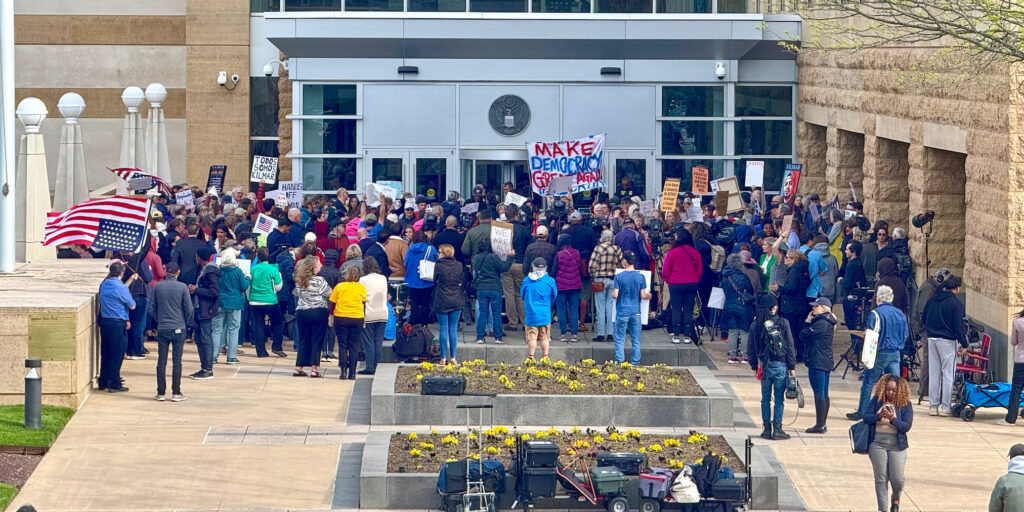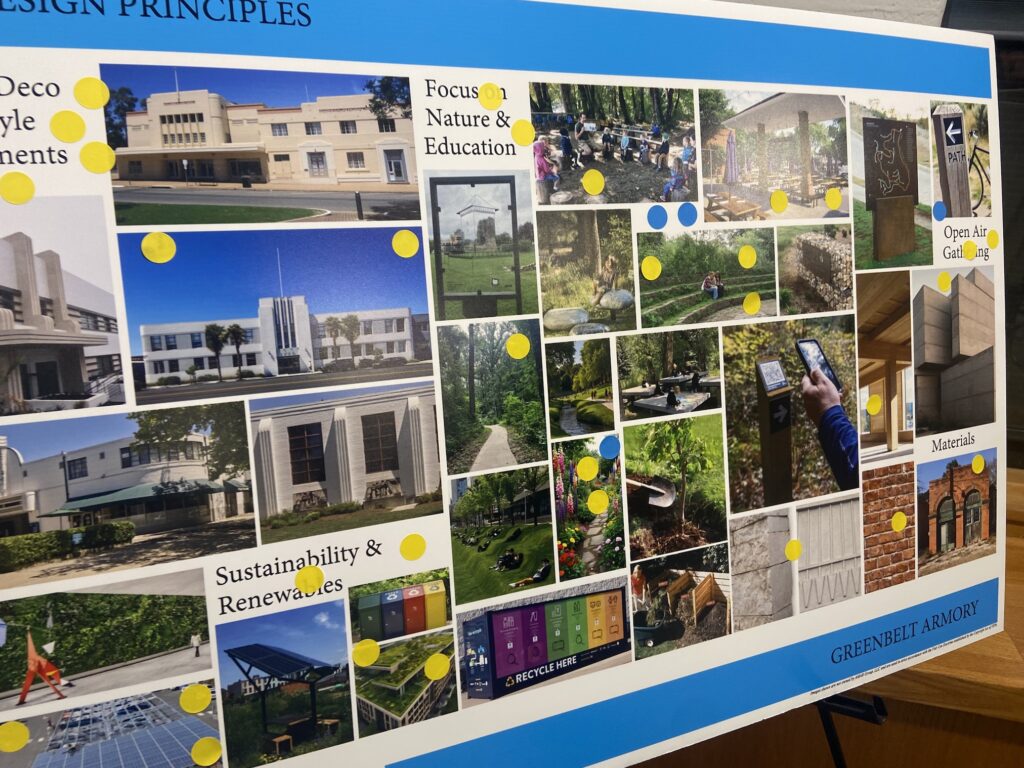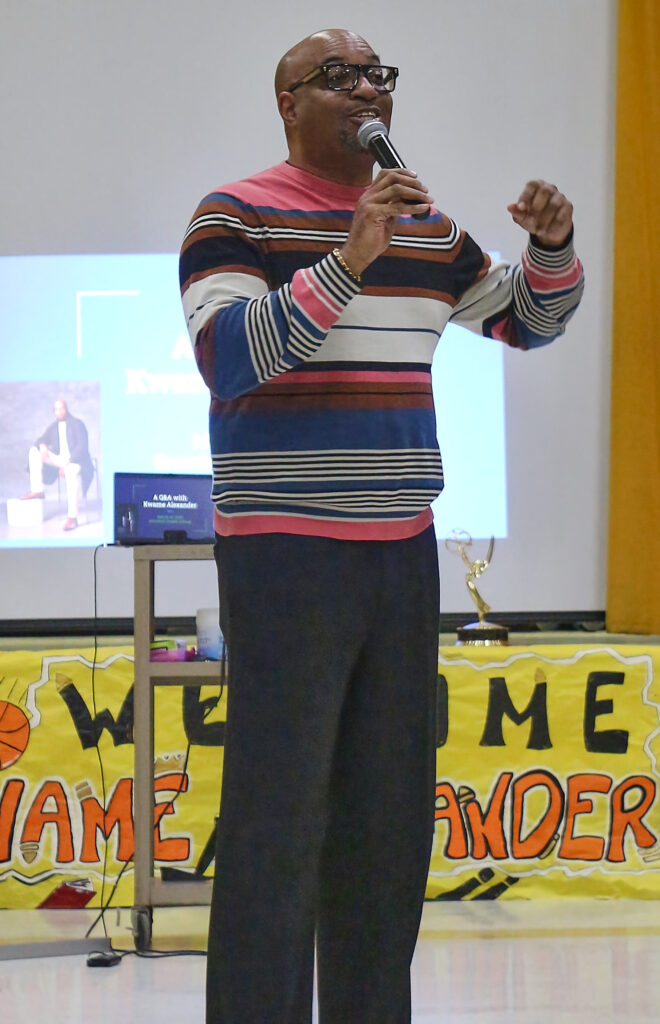On November 9 over 70 people attended a reparations discussion at Greenbelt Library, hosted by the Greenbelt Black History and Culture Committee. Panelists shared historical context, continuing efforts and the outlook for reparative justice for Indigenous and Black communities. Attendees came to learn, many bringing notebooks to record information they found meaningful.
Emancipation?
Committee Chair Lois Rosado, Ed.D., opened with why a fight continues for repatriation, remuneration and indigenous rights. Moderator Joey Jennings of the University of Maryland introduced panelists Raymond Winbush, Ph.D., of Morgan State University; Dreisen Heath, a human rights, reparative justice and liberation movements organizer, formerly of Human Rights Watch; and Elder Rico Newman of the Piscataway-Conoy Tribe of Indians.
Though the event commemorated Maryland’s November 1, 1864 Emancipation Day, panelists were skeptical of what the day celebrates. The Maryland constitution that emancipated enslaved persons was barely ratified by voters and not fully honored, with some formerly enslaved people forced into indentured servitude to their enslavers. Winbush noted that at Greenbelt’s founding, Blacks could work in Greenbelt but not live here.
Why Reparations?
Rosado said Indigenous and Black persons have been robbed of land and human rights, emancipated only to be confronted with racial terror lynchings and disenfranchisement and have only slowly gained rights, with psychological and economic effects to this day. Heath gave the example that in 1838 Georgetown University avoided bankruptcy by selling 272 enslaved persons to Louisiana slaveholders. The school acknowledged this in 2015 and created a foundation for those persons’ descendants, including educational benefits. However, an attendee who identified herself as Kaylin said she documented her descent from the group in her 2019 Georgetown application but was denied admission. This compounds the harm, said Heath.
Heath described the 1921 Tulsa Race Massacre when hundreds were killed and over 1,200 houses and businesses burned. No one was held accountable nor were survivors compensated, Heath noted. Tulsa-born Heath testified to Congress that redlining and other policies have also prevented recovery of the neighborhood, which she said has only two Black-owned properties, high unemployment, poor economic development, segregated schools, no local grocery stores and aggressive policing.
More recent injustices highlighted by the panel include Chicago police torturing over 100 Black people, from the 1970s to 1990s, to confess to crimes they didn’t commit, leading to prison and death sentences. Though Chicago acknowledged the torture and some convictions were overturned, one person died in prison, some with overturned convictions remain in prison and prosecutors continue pursuing some cases.
Indigenous Perspective
Newman said tribes seek not financial reparations, but land, education and economic self-sufficiency. They want repatriation of lands where they lived before colonization. Maryland colonial treaties recognized their rights to the land, but the U.S. deemed pre-U.S. treaties invalid. The 1862 Morrill Act authorized sale of Indigenous lands to fund land grant colleges and universities, including the University of Maryland. Former Maryland Governor Martin O’Malley issued executive orders in 2012 that recognize the Piscataway but don’t recognize land rights or any entitlements. The tribes seek scholarships for tribal members at universities that benefited from tribal land sales, which Newman said hasn’t occurred at the University of Maryland. He also said including Indigenous history in Maryland elementary school textbooks has only marginally improved in 20 years, and ends with 4th grade textbooks.
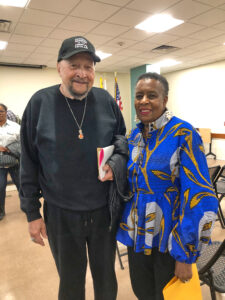
What Are Reparations?
Reparations are not merely financial compensation, but are to repair trauma and damage to survivors and their descendants, the panelists said. Reparations are not one size fits all, since trauma affects persons differently and different communities have different needs.
Reparations are not new, are not only for Black people and are used today to repair many communities who have been violated. Since 2015, Chicago has provided police torture survivors, their immediate families and deceased suspects’ immediate families with psychological counseling and free City Colleges of Chicago tuition and includes the torture history in 8th and 10th grades. Georgetown University established a foundation to benefit descendants of the persons they sold. Federal funds assist families of 9/11 victims, Camp Lejeune personnel exposed to toxic water and others.
But what is offered to Indigenous and Black peoples isn’t always meaningful, the panelists said. Newman said tribes are offered rights they won’t accept and can’t get rights they do want, mentioning Paha Sapa, the Black Hills of South Dakota, seized from the Sioux in 1877. Court cases in 1979 and 1980 called the seizure illegal and awarded the Sioux Nations millions of dollars. That multibillion-dollar bank account is untouched because accepting the money would renounce the land rights.
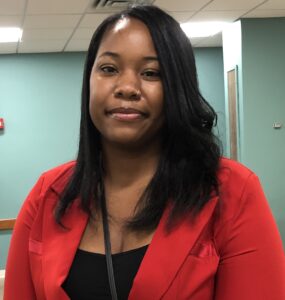
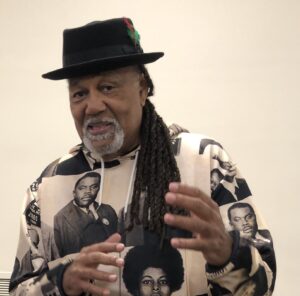
A Human Rights Watch report about Tulsa noted a 2021 museum about the massacre could be part of reparations but not instead of necessary repair or without survivor or descendant input.
Post-Election Outlook
The Bill H.R. 40 has been introduced in every Congress since 1989 to establish the Commission to Study and Develop Reparation Proposals for African Americans. Heath said 2022 negotiations that brought the bill near passing were foiled by Republicans led by Sen. John Cornyn (R-TX and current Senate Majority Leader candidate).
Heath predicted possible post-election scenarios. If Biden creates the commission by executive order before leaving office, President-elect Donald Trump could rescind the order or appoint reparations skeptics to the commission when he takes office. She said the new administration could alter census data and deny FOIA requests, and proposed evisceration of the Departments of Education and Justice would impede access to their data.
Current bill H.R. 4321 is intended to prohibit state and local reparations, which if passed would constrain Greenbelt’s efforts.
The Power of Paying Attention
Winbush stressed the importance of learning history and staying engaged in reparations efforts.
Panelists insisted on the need to hold institutions and jurisdictions accountable for a full and truthful reckoning of past and continuing harms. Newman and Heath both said that despite Georgetown saying it is redressing harms against descendants, experiences like Kaylin’s continue.
Heath discussed supporting each other within and between Black and Indigenous communities. Sharing educates all communities about past and continuing harms, encourages others to share their experiences and harnesses the power of community to repair those harms, she said.
Heath said she is concerned about the image of reparations as payments rather than a struggle for economic and social justice. She urged listeners not to rely on governing bodies for reparations, but independently build processes and institutions to self-resource what they need and deserve, saying, “We have to defend our livelihood.”
One attendee asked how to get young people “to embrace that there is still a struggle,” describing them as not caring about education or constructive activity. She asked how to inspire “pride in representing our community” and the knowledge that “we need to be collectively we.” Heath said she is inspired by young people who organize and strategize and by the intergenerational nature of the reparations and Land Back movements. She cited truth telling as key to younger generations learning the history that brought us to this point – this is not a new struggle. She advised telling them they are part of a legacy of principled struggle and they can’t afford not to care.

